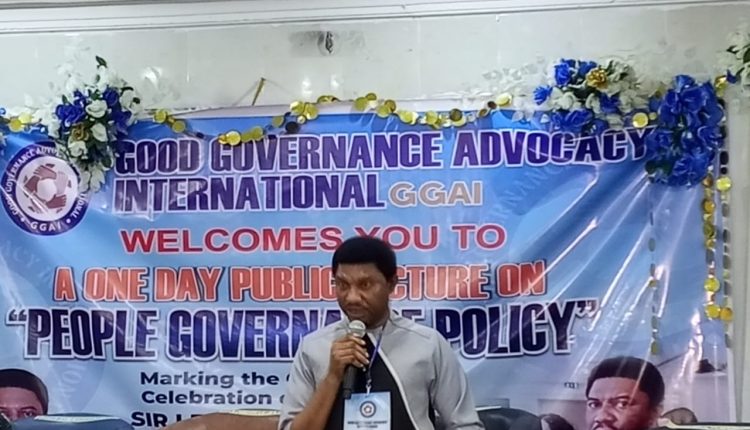Cross River’s people-centered governance model worthy of replication — Bong Duke
|
Getting your Trinity Audio player ready...
|
By Akpan David, Calabar
The Chief Executive Officer of the Cross River State Planning Commission, Dr. Bong Duke, has urged other states and African countries to adopt Cross River’s people-centered governance model, which focuses on human impact rather than physical infrastructure.
Dr. Duke made this known while delivering a lecture as guest speaker at the Golden Age Celebration of Barrister Leonard Anyogo, Director-General of Good Governance Advocacy International, held in Calabar. His paper, titled Good Governance and Advocacy: Good Governance and Policies, emphasized that true governance must translate into measurable improvement in people’s lives.
According to him, Cross River’s model of development prioritizes people-driven programs, projects, and initiatives over the mere construction of roads and buildings. “We don’t look at the kilometers of roads constructed; we look at the impact of those roads on the lives of our people,” he said.
He stressed that infrastructure without direct social benefit amounts to waste. “Gone are the days when the achievements of government were measured by physical structures. Many of those infrastructures are useless because they don’t help the people. Governance is about the people,” Duke stated.
He further argued that governments must begin to assess their performance using social indicators such as life expectancy, infant and maternal mortality rates, and the overall well-being of citizens. “We must ask: Are our people happier? Are they healthier? Has their standard of living improved?” he said.
Duke criticized the diversion of public funds into contracts and imported programs that add little value to citizens. He said instead of sending money abroad for imported food supplements and temporary relief programs, governments should design local initiatives that enrich lives and extend lifespan.
The Planning Commission boss described the Cross River model as a participatory one where feedback flows from communities and wards up to local and state levels. “Each of our sectoral plans has a direct impact on the people because we get feedback from those we govern,” he said.
He lauded Good Governance Advocacy International for organizing the event, saying such platforms help to embed the ideology of people-oriented governance in the consciousness of citizens. “Good governance is not just for government; it begins in our homes. Even in families, you must practice inclusive governance and get feedback from those you lead,” he added.
In his remarks, Barrister Leonard Anyogo, Director-General of Good Governance Advocacy International, said the organization was founded to bridge the gap between politics and governance. He lamented that while Nigerian leaders plan for elections, they often fail to plan for the people.
According to him, “Politics should be the vehicle, not the destination. The destination must be good governance.” He described his organization as Nigeria’s version of Chatham House — a policy hub where ideas and frameworks for governance can be generated locally rather than imported.
Anyogo explained that good governance is about ethics, engagement, and policies drawn from the people. “When policies are developed through community input, the people own the process. You cannot impose a project without listening to those affected,” he said.
Two of the discussants at the event, Mrs. Florence Oluohu, Editor-in-Chief of Nigerian Chronicle, and Dr. Emmanuel Ekuri, Managing Editor of New Kingdom Trumpet, also underscored the need for strong governance structures in Nigeria. They said for the country to move forward, institutions must be strengthened rather than making individual politicians more powerful than the state.



Comments are closed, but trackbacks and pingbacks are open.